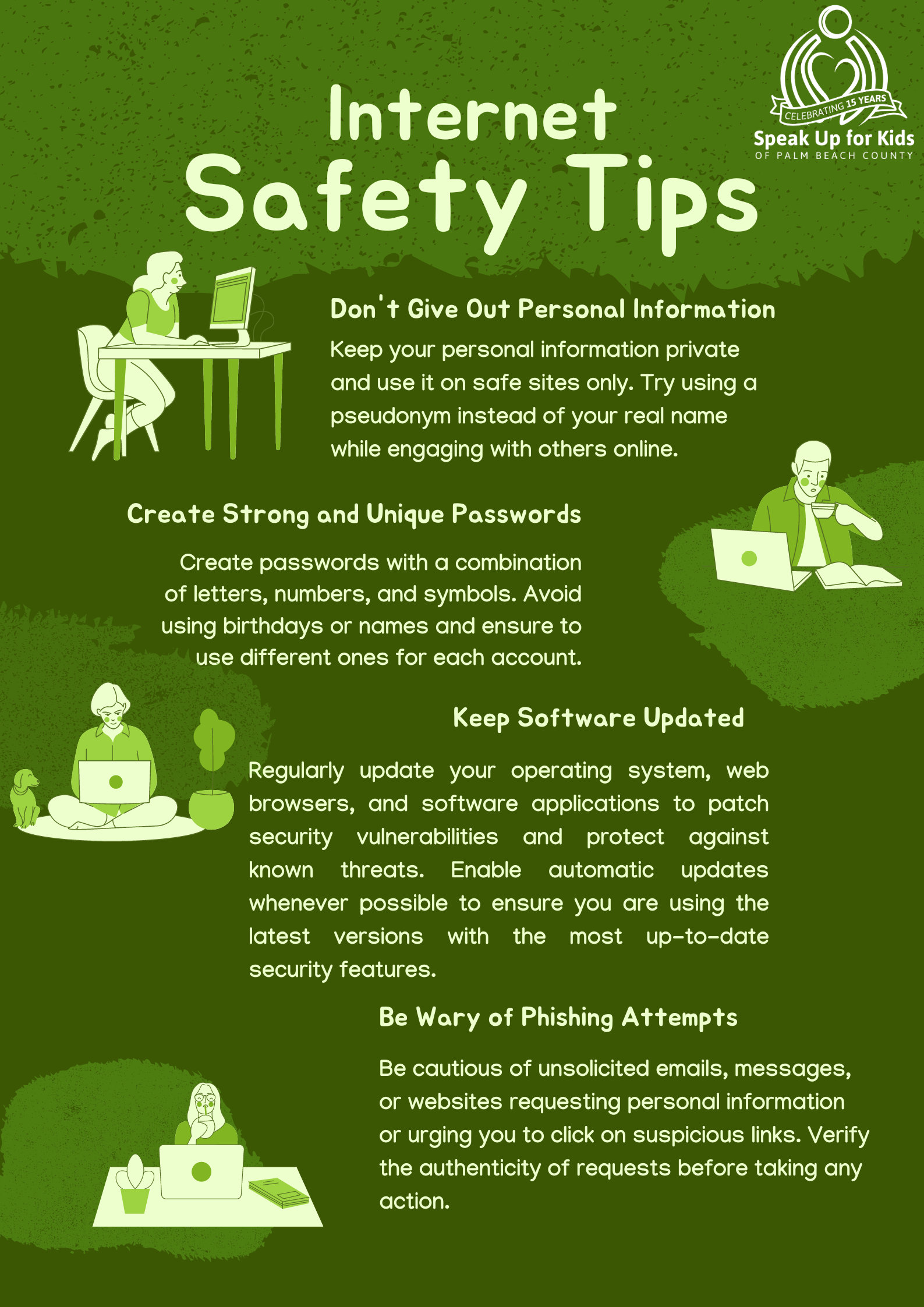Internet Safety: Keeping Yourself Safe on the Web
In today's digital age, the internet offers endless opportunities for connection, learning, and entertainment. However, amidst the vast expanse of cyberspace, there lurk potential dangers that can threaten our privacy and security. One cardinal rule stands paramount above all others: never share personal information with someone online. It's essential to stay vigilant and protect yourself from cyber threats that could compromise your personal information. Falling for online scams can result in the loss of sensitive data like your Social Security number, bank details, and passwords. Here's what you need to know to keep yourself safe:
Personal Information/Identity Theft: Personal information encompasses a wide range of data, including your full name, address, phone number, Social Security number, bank details, passwords, and more. While it may seem harmless to divulge such details in casual online conversations, doing so can have serious consequences. Sharing personal information puts you at risk of identity theft and fraud. Cybercriminals are adept at exploiting even the smallest scraps of information to piece together a profile of their targets, which they can then use to commit various forms of financial or identity-related crimes.
Use Strong and Unique Passwords: Create complex passwords for your accounts that include a combination of letters, numbers, and special characters. Avoid using easily guessable information like your name, birthdate, or common words. Additionally, use different passwords for each of your accounts to prevent a single breach from compromising multiple accounts.
Beware of Phishing Scams: Phishing scams often come in the form of emails that try to trick you into revealing personal information. These emails may claim there's been a security breach and ask you to provide your password or other sensitive details. Look out for urgent language and requests for immediate action, as these are common tactics used by scammers.
Watch for Red Flags: Be on the lookout for warning signs that indicate a scam. Emails or messages that demand urgent responses, ask for one-time payments through unusual methods like bitcoin or gift cards, or contain excessive use of capital letters are often indicators of malicious intent.
Avoid Clicking on Pop-up Ads: Pop-up ads on websites can sometimes be traps designed to install malware on your device and steal your information. It's best to steer clear of these ads, especially when browsing on less reputable websites.
To safeguard yourself against these risks, it's essential to adopt a cautious approach to online interactions. Whether you're chatting on social media, participating in online forums, or engaging in multiplayer games, always remember to keep personal information private. Stick to using a pseudonym or username instead of your real name, and refrain from sharing details like your address, phone number, or financial information under any circumstances. By staying aware and following these tips, you can help ensure a safer online experience for yourself. Remember, it's always better to err on the side of caution when it comes to protecting your personal information on the internet.


